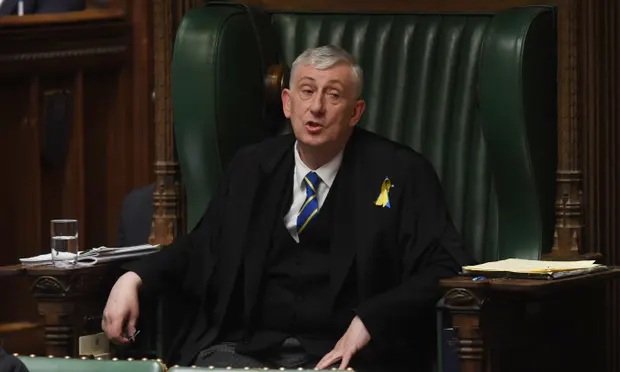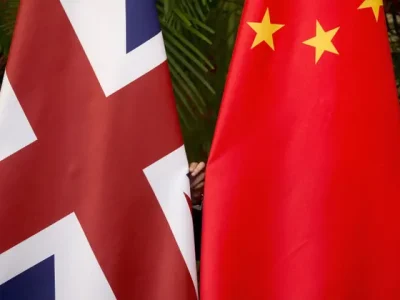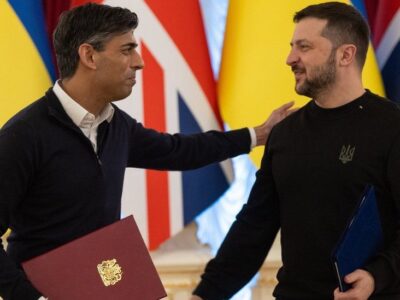A high-powered cross-party UK delegation to India led by the Commons Speaker, Sir Lindsay Hoyle, and his deputy has been called off at the last minute in a sign of a growing rift over India’s refusal to distance itself from the Russian invasion of Ukraine.
The 10-strong delegation has been in discussion with India since January and was planning to visit Delhi and Rajasthan, but the Indian high commission is understood to have raised objections at the last minute. Boris Johnson spoke with Indian prime minister, Narendra Modi, on Tuesday in an attempt to use his influence to persuade India to take a more robust position over the Russian invasion. India has not imposed sanctions or even condemned Russia, its biggest supplier of military hardware.

The Speaker’s visit, the first of its kind to India and part of his effort to act as a diplomat between parliaments, was due to go ahead during the Easter parliamentary recess. The delegation had originally been envisaged as giving a nudge to encourage progress on a UK-India free trade deal, but the context of the visit changed after the invasion of Ukraine in February, and Britain’s leading role in supporting the armed resistance of the Ukrainians. It was not clear if India’s issues were with individual members of the chosen delegation or related to a wider concern about British MPs being given a platform in India to urge Modi to take a more robust position.
Britain has been concerned about reports that India’s central bank is in initial consultations on a rupee-rouble trade arrangement with Moscow that would enable exports to Russia to continue after western sanctions restricted international payment mechanisms. The talks would allow India to continue to buy Russian energy exports and other goods.
However, India, locked in a land border dispute with China, may feel it cannot afford to alienate its main arms supplier. Russia’s invasion of Ukraine has abruptly transformed the world. Millions have already fled. A new Iron Curtain is grinding into place. An economic war deepens, as the military conflict escalates and civilian casualties rise. It’s our job at the Guardian to decipher a rapidly changing landscape, particularly when it involves a mounting refugee crisis and the risk of unthinkable escalation. Our correspondents are on the ground in Ukraine covering the war, as well as throughout the world, delivering round-the-clock reporting and analysis during this perilous moment.
We know there is no substitute for being there – and we’ll stay on the ground, as we did during the 1917 revolution, the Ukrainian famine of the 1930s, the collapse of 1991 and the first Russo-Ukrainian conflict in 2014. We have an illustrious, 200-year history reporting throughout Europe in times of upheaval, peace and everything in between. We won’t let up now.
Tens of millions have placed their trust in the Guardian’s fearless journalism since we started publishing 200 years ago, turning to us in moments of crisis, uncertainty, solidarity and hope. We’d like to invite you to join more than 1.5 million supporters, from 180 countries, who now power us financially – keeping us open to all, and fiercely independent.
Unlike many others, the Guardian has no shareholders and no billionaire owner. Just the determination and passion to deliver high-impact global reporting, always free from commercial or political influence. Reporting like this is vital to establish the facts, who is lying and who is telling the truth.
And we provide all this for free, for everyone to read. We do this because we believe in information equality. Greater numbers of people can keep track of the global events shaping our world, understand their impact on people and communities, and become inspired to take meaningful action. Millions can benefit from open access to quality, truthful news, regardless of their ability to pay for it.
![]()





